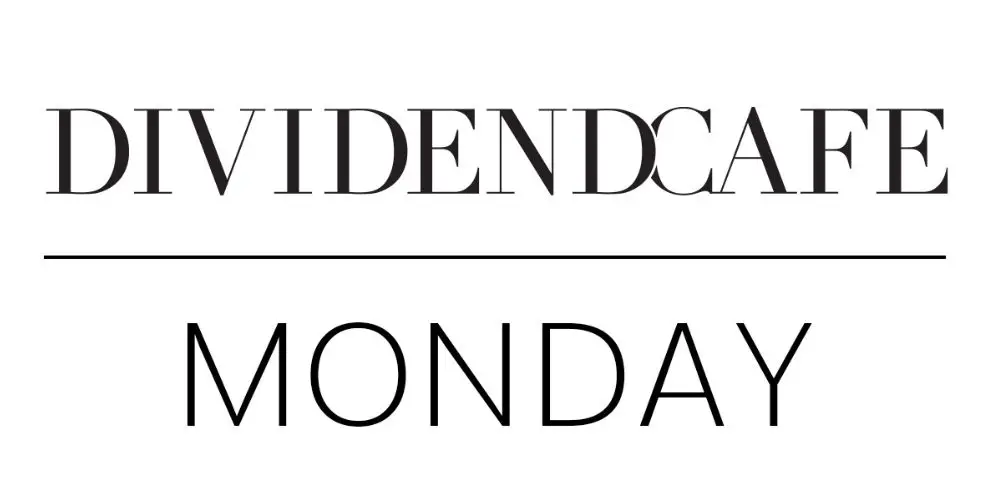Dear Valued Clients and Friends –
The Dow fell for the eighth day in a row today and is now off 1,300 points since hitting 45,000 on Dec. 4. Today, we go all around the horn, and there is a little something for everyone. I thought today’s Fox Business hit evaluating a few elements of Trump 2.0’s strategy and explaining my comfort level with objective play-calling was useful.
Dividend Cafe on Friday looked at the strong sentiment indicators we see in markets and surveys, both small business and corporate America. The general takeaways may be different than you think. The written version is here (my favorite), the video is here, and the podcast is here.
Speaking of podcasts – today’s Monday “around the horn” podcast is the 1,000th episode of our Dividend Cafe podcast since it began in 2015. Congrats to the three of you that have listened to every single one… =)
Off we go…
|
Subscribe on |
Market Action
- The market opened flattish today and kind of stayed around the flat level throughout the day before dropping a hundred points in the final twenty minutes of trading today.
- The Dow closed down -110 points (-0.25%,) with the S&P 500 up +0.38% and the Nasdaq up +1.24%.

*CNBC, DJIA, Dec. 16, 2024
- It is pretty amazing that Nvidia has been down over 10% in recent days, and yet the Nasdaq is at a new all-time high.
- Earlier in the year, 70% of NYSE stocks traded above their own 200-day moving average. Today, 61% are. Breadth has modestly weakened as prices have increased.
- The ten-year bond yield closed today at 4.399%, flat on the day.
- Top-performing sector for the day: Consumer Discretionary (+1.74%)
- Bottom-performing sector for the day: Energy (-2.19%)
- Cattle and Cocoa have hit new highs, yet the food index is well off of its highs as corn is down about 50% in the last couple of years, soybeans are in the same boat, and wheat is down well more than that since its initial Russia-provoked shortages of 2022. Commodities are not monolithic, my friend, and when one uses a “spot example” to make an inflationary (or deflationary) point, one is likely using an exception that proves the rule. If the whole price level is up, we have a word for it. When just cocoa is up, we call it “expensive chocolate.”
- Sentiment is red hot and will be a major theme going into the new year.
Public Policy
- I am hearing more and more that the plans for the SALT cap (i.e., limit on the deduction of state and local taxes) will be to move it from $10,000 to either $20,000 or $30,000 but not remove it altogether. This podcast with Dan Clifton of Strategas Research is well worth your time on such things (amongst others related to tax policy next year). Essentially, the removal of the cap becomes very expensive, and there are budget-conscious issues that have to be followed in the reconciliation process. However, a 10-20k increase in the deduction amount is essentially a 5-10k cash benefit to most filers of 100k and up. The SALT deduction limit in 2018 only caused a net increase in tax for very high earners with very high state tax and/or property tax burdens because it was accompanied by reductions in all the individual marginal rates. But now, to leave the marginal rates where they are and increase the deduction is a backdoor (maybe side door?) middle-class and upper-middle-class tax cut – without really doing anything for very high earners (which is politically safer).
- The Consumer Financial Protection Bureau has finalized a rule that would limit the amount a bank can charge a customer for overdrawing their account to $5, or else treating it as a line of credit and charging interest. The CFPB is a federal agency created after the financial crisis to make our financial system safer. And after hundreds of billions of dollars of evaporated capital in the midst of an over-levered credit apocalypse in 2008, we now, fifteen years later, have an overdraft fee limit. So there you go – mission accomplished! I have no words. Oh, and the incoming Trump administration can (and almost certainly will) throw out this new rule that was years and years in the making.
- Rep. French Hill of Arkansas, one of my favorite members of the United States Congress, will take over as Chairman of the House Financial Services Committee in the new Congress. He is a banking professional through and through, a sound economic mind, and a respected and grown-up legislator. And this is perhaps the most important committee in the entire House of Representatives.
- President-elect Trump and his nominee to lead Health & Human Services, Robert Kennedy Jr., had a long dinner with several massive pharmaceutical company CEOs at Mar-a-Lago last week, and the reports of the dinner were shocking to those expecting large restrictions on “big pharma.” Various items, such as pharmacy payments, remain on the table, but many of the feared bans on vaccines and other such political hyperbole appear to be dead before they started.
Economic Front
- Lost in the shuffle of the “in line with estimates” +0.3% November CPI move (+2.7% year-over-year) was the shelter component, only adding +0.2% on the month (in owner’s equivalent rent). If I am right that the “lag effect” of the shelter’s price increases in the CPI calculation is wearing off, this will represent an accelerated move down in the future monthly prints around inflation.
Federal Reserve
- The Fed now has a 97% chance of cutting rates this week (they will) and just a 17% chance of cutting rates next month (they won’t), but it is important to realize that monetary policy is more coordinated than it ever has been (either on purpose or merely organically) and that the U.S. does not exist on an island. Cutting rates even more aggressively than the Fed? Canada (by 0.50%, so now down to 3.25%). Switzerland (by 0.50%, so now down to 0.50%). Is a Swiss carry trade coming? The European Central Bank cut by 0.25% last week. It’s a central bank scrapbooking party where scissors are required for entry, and the cuts are across the globe.
- One country not mentioned above: Japan – the birthplace of Japanification (the name is not a mere coincidence). Will Japan actually hike rates in the months ahead? Will the rest of the world be cutting? I would not bet on that. Is it out of the question? No. Would that go a long way towards a little more yen carry trade unwind? Ummmm, if that happened, yes, it would.
Oil and Energy
- WTI Crude closed at $70.58, down -1% on the day.
- Midstream was down again last week (nearly -3%, with MLPs down -1.5%). The stock market was also down, but oil and gas prices were both up.
- A few takeaways from last week’s midstream conference in NYC (h/t Howard Hinds):
- The markets are open to higher capex and more spending on projects from midstream companies as long as the projects are good, the growth prospects are visible, and the leverage is kept in line.
- There does not appear to be a consensus that permitting reform is coming.
Ask TBG
| “I wonder if you have considered the possibility that the economic mood of voters could sour significantly if the new administration’s tax and spending policies disproportionately help the wealthy. What will the economic mood of the country be after the new congressional majority and president pass their tax and spending plans? In all fairness to you, I understand that the answers to these questions are unlikely to change how you advise your clients. However, I do believe that your last few letters have not fully addressed the possible problems associated with the incoming administration and Congress. There is a non-zero chance that the next couple of years could go very badly.” ~ Keith H. |
| I very much agree there are things that can go very badly – in any administration – including this one. I do not worry much that the economic policies of Trump 2.0 will disproportionately help the wealthy just because none of the policies I see being prescribed at this time indicate such, but I certainly think that the sentiment of the people is always subject to change, and I definitely believe in a world of left-wing and right-wing populism that the people are always primed for disappointment, carrying way too high an expectation of what Washington DC even could do for them if it wanted to. |
On Deck
- There will be a Friday Dividend Cafe this week, per usual, but there will not be one on Christmas week, the 27th. I will kick off 2025 with a Friday, January 3, Dividend Cafe, and then the first full week of the new year, January 10, will be the launch day of our annual “Year Behind, Year Ahead” white paper. The anticipation is thick!
- The last “Weekly Portfolio Holdings Report” (WPHR) for clients this year will be in two days, the 18th. There will be no WPHR on Christmas Day or New Year’s Day, and we will pick things up with a special “2024 recap” edition WPHR on Wednesday, January 8.
- There will be a Monday Dividend Cafe each of the next two Mondays, the 23rd and the 30th.
A busy week ahead here in the cold and rainy NYC … I will be very excited for the Christmas week with all of my family together by the end of this week. In the meantime, there are a few things to do. Reach out with questions.
With regards,
David L. Bahnsen
Chief Investment Officer, Managing Partner
The Bahnsen Group
www.thebahnsengroup.com
The Dividend Cafe features research from S&P, Baird, Barclays, Goldman Sachs, and the IRN research platform of FactSet.












